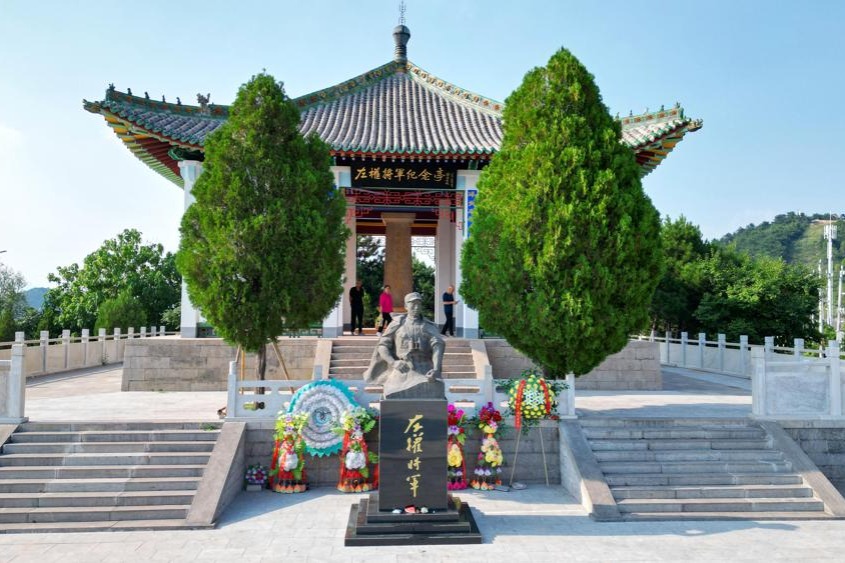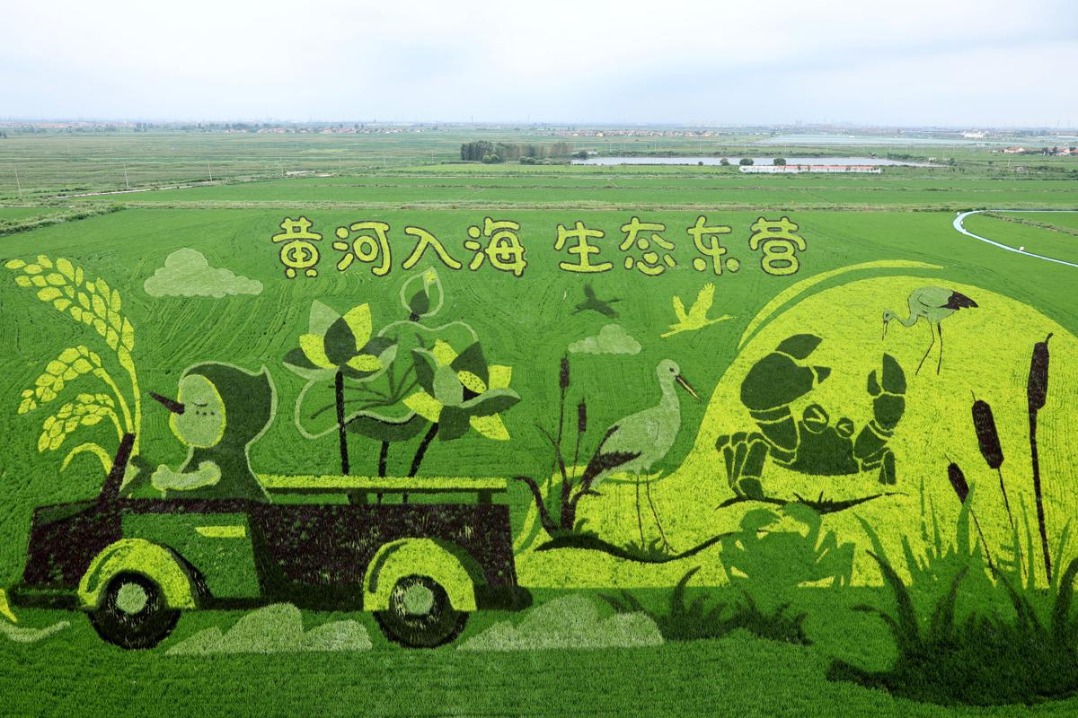Ethnic folk songs thrive on China's social media


NANNING — For thousands of years, folk songs have been a social affair for Chinese people, especially those in ethnic areas. In the era of social media, instead of fading out, however, this tradition is working up to a crescendo and resonating with new audiences.
Yufeng Park in Liuzhou, a city in the Guangxi Zhuang autonomous region, is an important stage for singing parties and socializing. Residents can be heard singing folk songs in almost every corner of the park.
According to folklore, the park is where Liu Sanjie, a legendary ethnic Zhuang singer, used her songs to teach farming skills, help young people find love and promote family values. A movie adaptation of her story is well-known in China.
The park is also the birthplace of Liuzhou folk song, which has been listed as an intangible cultural heritage of Guangxi, home to a large Zhuang population. The Zhuang are China's second-largest ethnic group after Han.
Nowadays, mobile phones on tripods are common sights in the park as local singers hold live webcasts. The social media frenzy is helping traditional ethnic folk songs fly out of the remote mountains to attract fans in China and beyond.
"We used to arrange a folk song party via QQ and WeChat (both instant messaging apps). Now, we can quickly find people by shouting 'come and sing' in the live-broadcast room," said 48-year-old Lei Yingshi.
Set up in front of their phone cameras, Lei and his pals belted out a new folk song about the beauty of the local Yufeng Hill, and how local folk songs spread out of Guangxi via the internet.
"I watched elderly people sing while doing farmwork when I was a child. In 2009, I began to learn from singers in the park. I found singing to be very relaxing, right from the get-go, and the more I sing, the more I feel the history and stories of the songs," he said.
Lei is now a "representative inheritor" of Liuzhou folk songs, and often visits villages to collect more. "Folk songs come from daily life," Lei said. Social changes and the evolution of communication methods are reflected in changes to the music.
"In the past, it was the elderly who loved to sing folk songs, but now, with the popularity of livestreaming, more young people are coming to know and appreciate the beauty of the songs," the singer said. "Love ballads used to be more popular, but now the lyrics also incorporate explanations of national policies, anti-fraud publicity and science."
Two years ago, he joined the world of livestreaming and began to teach folk songs to those who wished to learn the art.
Wei Lili, an ethnic Miao, is a student of Lei. In the circle of folk song enthusiasts, she is better known as "Shan San Mei" and has millions of fans.
"I grew up watching Liu Sanjie's movies. A few years ago, I started lip-syncing her songs. As my fan base grew, I wanted to learn authentic folk songs, combine folk song elements with pop songs, and better spread folk songs through live broadcasts and short videos," she said.
The popularity of folk songs in live broadcasts has snowballed, leading the singing team to include more people, from ethnic minorities and Han to non-Chinese.
Lu Lianfang, a 48-year-old ethnic Yao, has more than 400,000 fans on Douyin, the Chinese version of TikTok. She has more than 200 students, including farmers, vegetable sellers, entrepreneurs, school principals and university students. Among them is a Pakistani national. "We look forward to folk songs being translated into foreign languages and sung on the world stage," she said.
Liu Rihong, 18, is of Han ethnicity and has learned folk songs from Lu for 7 years. Going by the name "Little Sun", she has more than 10,000 fans on Douyin. "In the old days, Liu Sanjie just sang about rural life, like teaching people how to plant rice. I am now studying tourism management in college and I use folk songs to promote Liuzhou's tourist attractions," Liu said.
Lu said young people today still find romantic partners by singing folk songs online, but the genre also plays other roles such as promoting local specialties such as luosifen, a noodle dish known for its pungent smell.
Nowadays, Yufeng Park regularly hosts folk song competitions. Wei said she has met singing enthusiasts from all over the country.
Xinhua
- Beijing plugs safety gaps amid rain alert
- Iconic Red Zuoquan site captured from the air
- Beijing designated as controlled airspace for drones
- Anniversary film showcases Xizang's development
- Beijing district claims major success in battle against telecom fraud
- Discover Qingdao International Beer Festival and city like a pro





































